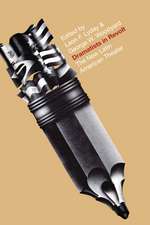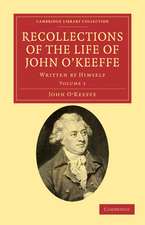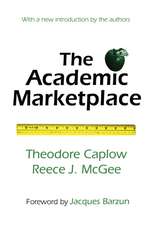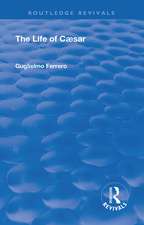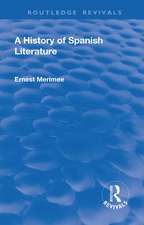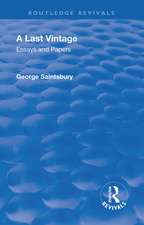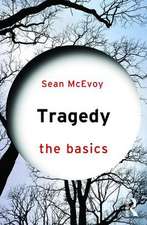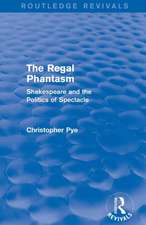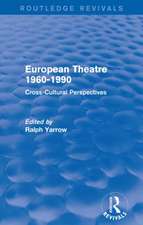Beggary and Theatre in Early Modern England: Routledge Revivals
Autor Paola Pugliattien Limba Engleză Paperback – 29 oct 2019
| Toate formatele și edițiile | Preț | Express |
|---|---|---|
| Paperback (1) | 216.07 lei 6-8 săpt. | |
| Taylor & Francis – 29 oct 2019 | 216.07 lei 6-8 săpt. | |
| Hardback (1) | 499.77 lei 6-8 săpt. | |
| Taylor & Francis – 2 noi 2017 | 499.77 lei 6-8 săpt. |
Din seria Routledge Revivals
- 9%
 Preț: 801.71 lei
Preț: 801.71 lei - 8%
 Preț: 432.64 lei
Preț: 432.64 lei -
 Preț: 168.89 lei
Preț: 168.89 lei -
 Preț: 245.88 lei
Preț: 245.88 lei -
 Preț: 309.79 lei
Preț: 309.79 lei -
 Preț: 258.73 lei
Preț: 258.73 lei - 9%
 Preț: 764.35 lei
Preț: 764.35 lei - 9%
 Preț: 903.42 lei
Preț: 903.42 lei -
 Preț: 311.18 lei
Preț: 311.18 lei -
 Preț: 357.45 lei
Preț: 357.45 lei - 9%
 Preț: 626.93 lei
Preț: 626.93 lei -
 Preț: 317.54 lei
Preț: 317.54 lei - 9%
 Preț: 764.30 lei
Preț: 764.30 lei -
 Preț: 257.01 lei
Preț: 257.01 lei -
 Preț: 238.40 lei
Preț: 238.40 lei -
 Preț: 259.48 lei
Preț: 259.48 lei - 9%
 Preț: 938.10 lei
Preț: 938.10 lei -
 Preț: 341.33 lei
Preț: 341.33 lei -
 Preț: 264.10 lei
Preț: 264.10 lei -
 Preț: 294.98 lei
Preț: 294.98 lei -
 Preț: 308.89 lei
Preț: 308.89 lei -
 Preț: 207.40 lei
Preț: 207.40 lei -
 Preț: 347.50 lei
Preț: 347.50 lei -
 Preț: 302.59 lei
Preț: 302.59 lei -
 Preț: 389.40 lei
Preț: 389.40 lei -
 Preț: 257.01 lei
Preț: 257.01 lei -
 Preț: 358.30 lei
Preț: 358.30 lei - 9%
 Preț: 640.91 lei
Preț: 640.91 lei - 9%
 Preț: 619.49 lei
Preț: 619.49 lei -
 Preț: 228.88 lei
Preț: 228.88 lei -
 Preț: 265.16 lei
Preț: 265.16 lei -
 Preț: 257.90 lei
Preț: 257.90 lei -
 Preț: 266.06 lei
Preț: 266.06 lei -
 Preț: 258.73 lei
Preț: 258.73 lei -
 Preț: 384.01 lei
Preț: 384.01 lei -
 Preț: 246.38 lei
Preț: 246.38 lei - 9%
 Preț: 832.08 lei
Preț: 832.08 lei -
 Preț: 266.20 lei
Preț: 266.20 lei -
 Preț: 294.53 lei
Preț: 294.53 lei - 18%
 Preț: 695.86 lei
Preț: 695.86 lei - 9%
 Preț: 934.96 lei
Preț: 934.96 lei - 5%
 Preț: 243.38 lei
Preț: 243.38 lei -
 Preț: 274.69 lei
Preț: 274.69 lei -
 Preț: 208.20 lei
Preț: 208.20 lei - 9%
 Preț: 659.19 lei
Preț: 659.19 lei -
 Preț: 259.69 lei
Preț: 259.69 lei - 9%
 Preț: 1038.47 lei
Preț: 1038.47 lei -
 Preț: 389.46 lei
Preț: 389.46 lei -
 Preț: 302.14 lei
Preț: 302.14 lei -
 Preț: 302.27 lei
Preț: 302.27 lei
Preț: 216.07 lei
Preț vechi: 266.20 lei
-19% Nou
Puncte Express: 324
Preț estimativ în valută:
41.36€ • 44.94$ • 34.76£
41.36€ • 44.94$ • 34.76£
Carte tipărită la comandă
Livrare economică 21 aprilie-05 mai
Preluare comenzi: 021 569.72.76
Specificații
ISBN-13: 9781138719354
ISBN-10: 1138719358
Pagini: 242
Dimensiuni: 154 x 234 mm
Greutate: 0.45 kg
Ediția:1
Editura: Taylor & Francis
Colecția Routledge
Seria Routledge Revivals
Locul publicării:Oxford, United Kingdom
ISBN-10: 1138719358
Pagini: 242
Dimensiuni: 154 x 234 mm
Greutate: 0.45 kg
Ediția:1
Editura: Taylor & Francis
Colecția Routledge
Seria Routledge Revivals
Locul publicării:Oxford, United Kingdom
Cuprins
Contents: Introduction: mendicitas et mendacia; The facts: Vagrancy and beggary in Europe; The legislation in England: The repression of vagrancy; Henry VIII: the interdiction of disguise; Edward VI: prophecy and sedition; Mary: 'lewd plays and players'; Elizabeth: the systematization of control; James I: the restriction of patronage and the hardening of censorship; Philosophical and religious perceptions and representations: Idleness: pigritia and pervagatio; Disguise, or, 'the vagrancy of the signifier': apparel as semiotic system; Disguise in the theatre: impersonation; Disguise in the theatre: cross-dressing; The 'Depe dissimulation' and the 'sclerous secrets' of beggars; Plagues and parasites: plague carriers and culprits; Parasitism and language; Literary appropriations: The rogue pamphlets, the conny-catching pamphlets and the picaresque novels; The European tradition of beggar books; Theatricality: beggars; Harman's A Caueat: prejudiced authenticity; The theatricality of Harman's beggars; Digression: Alexander Iden, alias Thomas Harman; Theatricality: the conny-catchers: G.W.: the rhetoric of detection and instruction; Greene's first discovery of cozenage; Between plagiarism and hybridization: Dekker's Lanthorne and candle-light; Epilogue; Index.
Recenzii
'Pugliatti’s wonderfully thorough review of the relations between play-acting and conny-catching uses the history of attitudes to beggars and ’sturdy vagabonds’ across Early Modern Europe to deepen our knowledge of where Shakespeare’s plays came from... Shakespeare’s fellow-players now have a firm context for our view of where their games of illusion started from.' Professor Andrew Gurr, University of Reading '...a very important contribution to the study of poverty and beggary in the early modern period... complements and, in some cases, corrects recent studies by literary scholars. More importantly, this study places the topic in the context of European-wide concerns.' William C. Carroll, author of Fat King, Lean Beggar: Representations of Poverty in the Age of Shakespeare and Professor of English, Boston University 'The nine chapters in this remarkable, scholarly work warrant attention from all who are interested in early modern culture. Highly recommended.' Choice 'As Pugliatti mines this rich vein of material she offers useful evaluations of recent studies of poverty and beggary, particularly William Carroll's Fat Kings and Learn Beggars. In the book as a whole, one of Pugliatti's major contributions is the way she provides a Continental context.' Renaissance Quarterly '... provides convincing evidence for this surprisingly emphatic and prejudicial association of begging and performing, and a cogent analysis of some of its roots and outcomes... Pugliatti definitively sets in order the genre of rogue literature, discovering new significance in familiar but often slightly regarded texts... a promising basis for, among other things, studies of play-texts. Its wide and learned European context demonstrates the unique value of cross-cultural analysis. Its historical and formal analysis of rogue literature is a major intervention that provides an essential basis for future inquiries and discussion.' Clio '... a set of texts rich in their implica
Descriere
This title was first published in 2003. In this new socio-cultural study of the history of the theatre in early modern England, author Paola Pugliatti investigates the question of why, in the Tudor and early Stuart period, unregulated and unlicensed theatrical activities were equated by the English law to unregulated and unlicensed begging. Placing the topic in a European context and relying on the reading of primary documents in several languages, Pugliatti discusses efforts to control beggary from Justinian's Codex to seventeenth-century statutes, locates the origin of anti-vagrancy and antitheatrical writings in anxieties about idleness and disguise, and analyzes the ways in which various kinds of representation demonized both beggars and players. By carefully distinguishing between the traditions of rogue pamphlets, conny-catching pamphlets and the picaresque, she offers fresh readings of a number of texts which appear to have been entirely disregarded by recent scholarship, such as pamphlets by Walker, Harman, Greene and Dekker.


